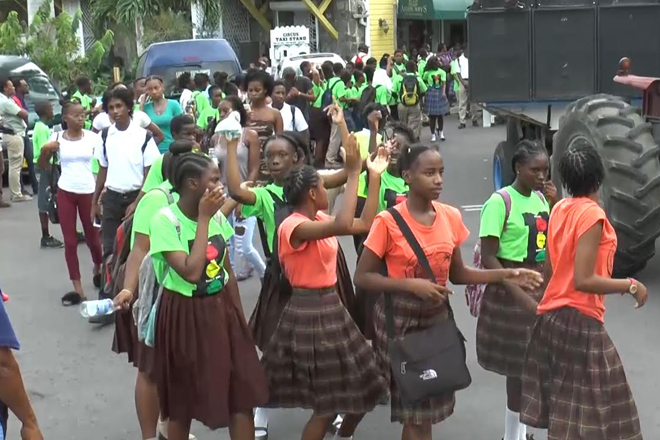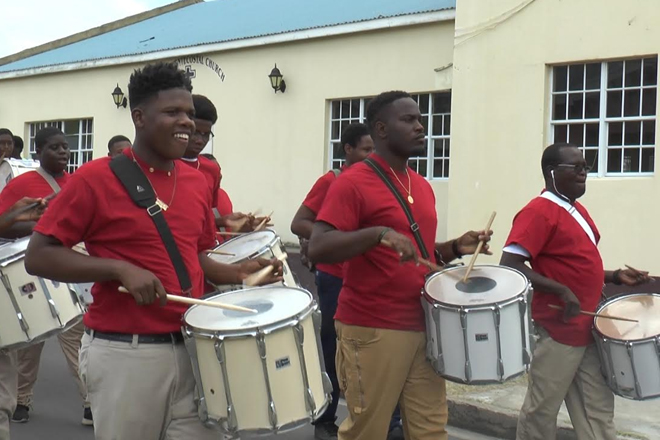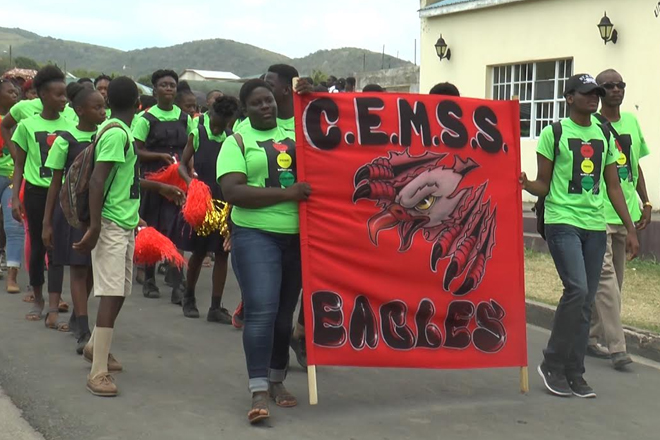Published 7 April, 2017
(NATCOM) – Basseterre, April 3, 2017: Programme Specialist for Social and Human Sciences Sector and Gender Focal Point in the UNESCO Cluster Office for the Caribbean Ms. Gisselle Burbano, visited the Federation last week to participate in the final consultation on the Youth Policy towards which UNESCO has provided substantial technical and financial assistance.
According to Secretary General of the National Commission for UNESCO Mr. Antonio Maynard, Ms. Burbano came to participate as a means of solidifying UNESCO’s continued commitment to seeing the project through to completion as well as its implementation in the various sectors thereafter in collaboration with its partner in this venture, the Commonwealth.
Mr. Maynard stated that UNESCO in keeping with its mandate obligates itself to ensuring that young people are empowered to benefit from the communities in which they live and to be equipped to contribute significantly as well.
The visiting consultant on the Youth Policy took the opportunity to meet with Minister of Education, Youth, Sports and Culture Hon Shawn Richards on whose initiative the revival of Youth Policy development was sparked.
UNESCO’s role has been outstanding as one of the United Nations agencies most visible in the pursuit of the youth agenda. The framework for the youth policy and development is largely set by the United Nations (UN) and its various agencies, subsidiary organs and affiliated organizations to establishing strategies, targets and indicators that guide actions, targets and indicators on the issues of girls, women, males, marginalized populations and young people, that are relevant in the development of youth policy.
Minister of Education Hon Shawn Richards said the drafting and implementation of a National Youth Policy is a “win-win” across sectors. He noted specifically that “as a tool that would guide governmental agencies in support of youth development as well as a lobbying instrument for youth-serving agencies and organizations, it would assist in the advocacy for obtainable targets and goals for young people.”
The consultant and Deputy Prime Minister Richards also took the opportunity to discuss related matters including Gender Equity; Doping in Sports and other youth centered projects and programmes in which UNESCO’s role has been outstanding and invaluable.
Minister Richards stated that the support from UNESCO and the Commonwealth has been insightful and laid the groundwork for a successful endeavour as his ministry has sought to ensure that the Federal Youth Policy 2017-2022 is being done in consultation with the Global Agenda for Youth Development as well as the OECS and CARICOM Agendas which outline global themes and priorities.
In the national context the following have been identified as priority goals: Economic Participation; Safety, Security and Protection: Education and Lifelong Learning; Health and Wellbeing; Youth as Agents of democracy, development and nation building: Youth and Sustainable Development as well as Youth Development Work
According to the document the youth policy is predicated within an image of success for all young people, and ideal vision of the Federation with young women and men as enablers and assets to current and future development.
A national youth policy is a clear framework, based on rights, needs, youth talents and assets that establishes the agreed agenda and investment strategy for cross-sectoral supports for youth wellbeing.
It provides the comprehensive framework for inclusive participation of young people as assets to national development; cooperation and integrated supports to build resilience and strengths for young people’s empowerment; a national system of accountability on the impacts of investments in youth development as well as building national capacity for the quality conduct and management of youth work and development as an enabler of national development.











